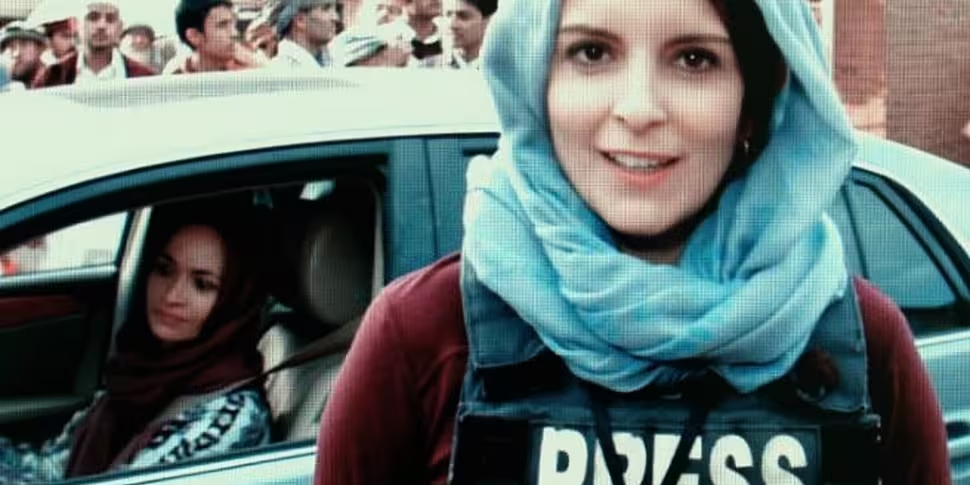As the old saying goes, tragedy plus time equals comedy. Hollywood, however, has never been a place overflowing with patience.
There has been a recent spate of superstars attempting to tackle the Middle East in a more comedic manner than you might expect for a part of the world that is still very much war torn, not to mention torn up by a war that many people can't fully figure out. The idea of making light of a heavy situation isn't a new one - Stanley Kubrick dropped Dr. Strangelove right in the middle of the Cold War - but it does require a genius, a light touch, or a bit of both.
That was not the case with Rock The Kasbah.
Director Barry Levinson was a man to take notice of back in the day (Rain Man, Good Morning Vietnam) but has been on a solid losing streak since the mid-00s (you've probably never seen, let alone heard of, the likes of The Bay, What Just Happened or Man Of The Year).
Starring Bill Murray, Bruce Willis and Zooey Deschanel, it eventually found a plot involving Murray breaking the laws of Afghanistan to get a woman gifted with a great singing voice to perform on their local version of The X-Factor. It was, essentially, the story of a white man saving non-white people from their own "ignorance"... and the film was suitably torn apart by critics (29% on Metacritic), and was one of the biggest bombs of 2015, making just over $3 million of it's $15 million budget back at the box office.
Lesson not learned, we were next given the first of a rapid succession one-two punch with Whiskey Tango Foxtrot.
Released in the States in March (and due for release here this month), it featured Tina Fey heading off to Afghanistan to become an on-the-ground reporter, but really, she's using the Middle East's crisis as a way to divert attention from her own mid-life crisis. As you do.
The odd thing about WTF (you just got the title now, didn't you?) isn't so much that it's bad - although the 57% on Metacritic and $23 million return on a $35 million budget doesn't exactly spell out a huge success. No, the real issue is that the trailer would have you believe that it's a mad-cap comedy with Fey on full 30 Rock mode, but the actual finished product is actually a very drama heavy movie, complete with Fey's best performance to date, which just happens to have a few jokes in it, all of which are in that trailer.
Almost immediately after came A Hologram For The King, which did manage to switch it up a bit, but essentially make the same mistakes.
Released in the States two weeks ago, and due out here at the end of May, you might be surprised that a film starring Tom Hanks, based on a book by Dave Eggers, is about to be released with little-to-no fanfare, but A Hologram For The King shows what happens when Hollywood has a film that they have no idea how to promote a product.
Another white man in another predominantly non-white country, trying to fix their problems, only this time it's adding in that most un-cinematic plot point of I.T. problems. Critics were universally "Meh" about it (58% on Metacritic), but audiences avoided it like the plague, it's opening weekend of $1.1 million makes it the lowest Tom Hanks semi-wide release opening weekend since... well, ever. The budget hasn't been officially announced, but the estimates of mid-to-low $30m range means that Hollywood visiting the Middle East has bombed yet again.
Looking a bit wider, and the problem is also starting to appear elsewhere. Specifically, Ecuador.
First up, Sandra Bullock tries to save the third-world country from itself in the "political" "comedy" Our Brand Is Crisis, another funny film that is barely, fitfully funny, and another film that critics were apathetic about (53%) and audiences outright ignored ($7 million on a $28 million budget), and just last week, Ricky Gervais released his latest directorial outing Special Correspondents exclusively on Netflix.
Due to the fact that it is a Netflix release, we'll probably never know it's budget or the monetary return they've made on it, but the Ecuador based comedy has resulted with a 36% score on Metacritic, and again, very little fanfare.
So why are all these projects failing so spectacularly? Perhaps, in the modern political climate, it's not as easy to make fun of "them" as being the bad guys and "us" the good guys. The muddled opinions of right and wrong, added to the fact that more and more people are aware of the horrors caused by the mass confusion, maybe makes it more difficult to find the situation humorous?
Or maybe we just need someone more adept that the people involved so far to make these kind of movies. Stanley Kubrick is among the best directors ever in the history of the film, and there's very few comparable political comedies on the level of Strangelove - for every In The Loop or The American President, there's The Campaign, The Dictator or Head Of State.
Or, maybe, Hollywood shouldn't be making comedies about these countries in the first place. With one of the most comedic political campaigns in history currently taking place in their country, it can seem a little high-and-mighty they should want to make light of the political situations in other countries.
As the old saying goes, people in glass houses...









